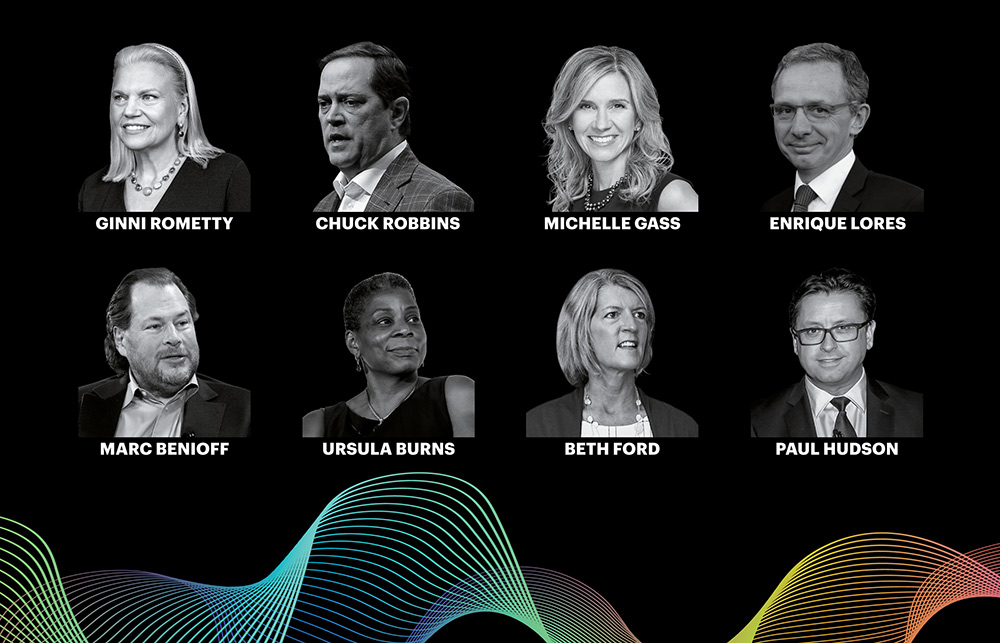
2020年是不寻常的一年,这一年,全球爆发新冠疫情,美国国内抗议警察对有色人种采取暴力,首席执行官们也开始直抒己见。
许多企业领导人以前因为担心惹恼客户和投资者而回避谈论敏感话题,现在,他们却掀起了一些波澜。他们掀起的波澜并不是海啸,他们选择介入的话题范围也很有限,但与往年相比,他们的直言不讳还是很明显的。
德勤美国公司(Deloitte U.S.)的首席执行官乔·乌库佐格鲁在《财富》杂志的一期《未来领导力》播客讨论中说:“我们的员工想知道,他们服务的组织是一个愿意明显捍卫维我们的价值观的组织,一个支持与我们生活工作息息相关的社会变革的组织。”
在明尼阿波利斯警察杀害乔治·弗洛伊德之后,许多首席执行官首次与员工就种族问题进行了对话,同时承诺将采取更多措施,使员工队伍更加多样化。有些首席执行官赞同改变工作氛围并且保护工作环境。
企业领导人为解决社会问题所做的努力最近被冠以“利益相关者资本主义”的标签。是的,企业仍然希望使股东满意,但也不能忽视工人、社会各界和供应商。
问题是,企业是否只是坐而论道。毕竟,口头说说不需要付出任何代价,而实际行动则会产生实实在在的成本。
首席执行官们将如何处理使员工面临失业的工作自动化问题?如何对抗总统,哪怕这位总统喜欢用推特(Twitter)攻击任何敢于公开反对他的人呢?
诚然,首席执行官们在追求利润时会仔细挑选要解决的问题和要忽略的问题。但乌库佐格鲁说,总的来说,总体成效是值得肯定的。
他说:“我们企业界有义务推动以包容性发展实现共同繁荣,我们重视技能提升和再培训,确保社会各界都能够公平地参与到科技驱动的未来中。但最终,这将以极其有益的方式为整个社会带来更多的机遇。”(财富中文网)
译者:郝秀
审校:汪皓
2020年是不寻常的一年,这一年,全球爆发新冠疫情,美国国内抗议警察对有色人种采取暴力,首席执行官们也开始直抒己见。
许多企业领导人以前因为担心惹恼客户和投资者而回避谈论敏感话题,现在,他们却掀起了一些波澜。他们掀起的波澜并不是海啸,他们选择介入的话题范围也很有限,但与往年相比,他们的直言不讳还是很明显的。
德勤美国公司(Deloitte U.S.)的首席执行官乔·乌库佐格鲁在《财富》杂志的一期《未来领导力》播客讨论中说:“我们的员工想知道,他们服务的组织是一个愿意明显捍卫维我们的价值观的组织,一个支持与我们生活工作息息相关的社会变革的组织。”
在明尼阿波利斯警察杀害乔治·弗洛伊德之后,许多首席执行官首次与员工就种族问题进行了对话,同时承诺将采取更多措施,使员工队伍更加多样化。有些首席执行官赞同改变工作氛围并且保护工作环境。
企业领导人为解决社会问题所做的努力最近被冠以“利益相关者资本主义”的标签。是的,企业仍然希望使股东满意,但也不能忽视工人、社会各界和供应商。
问题是,企业是否只是坐而论道。毕竟,口头说说不需要付出任何代价,而实际行动则会产生实实在在的成本。
首席执行官们将如何处理使员工面临失业的工作自动化问题?如何对抗总统,哪怕这位总统喜欢用推特(Twitter)攻击任何敢于公开反对他的人呢?
诚然,首席执行官们在追求利润时会仔细挑选要解决的问题和要忽略的问题。但乌库佐格鲁说,总的来说,总体成效是值得肯定的。
他说:“我们企业界有义务推动以包容性发展实现共同繁荣,我们重视技能提升和再培训,确保社会各界都能够公平地参与到科技驱动的未来中。但最终,这将以极其有益的方式为整个社会带来更多的机遇。”(财富中文网)
译者:郝秀
审校:汪皓
An unusual thing happened in 2020, a year marked by a global pandemic and domestic protests over how police treat people of color: CEOs found a voice.
Previously known for avoiding sensitive topics, for fear of upsetting customers and investors, many business leaders actually made some waves. The waves they created weren't tsunamis, and the spectrum of topics they chose to wade in on was limited, but their outspokenness nevertheless stood out compared with years past.
"Our people want to know that they work for an organization that's willing to visibly stand up for our values and speak out in favor of those societal changes that are near and dear to us," Joe Ucuzoglu, CEO of Deloitte U.S., the domestic arm of the business consulting giant, said during a discussion on Fortune’s Leadership Next podcast.
Following the police killing of George Floyd in Minneapolis, many CEOs had conversations with their employees about race for the first time while promising to do more to make their workforces more diverse. Others chimed in about climate change and the need to protect the environment.
The push by corporate leaders to address social problems has recently been branded "stakeholder capitalism." Yes, companies still want to make their shareholders happy, but they also want to ensure their workers, local communities, and suppliers aren't left behind.
The question is whether companies are just paying lip service to the idea of doing good. After all, talk is cheap, while action can be costly.
How will CEOs handle automating their workplaces, which can put employees in the unemployment line? What about standing up to a President, even one who likes to use Twitter to attack anyone who dares to speak out against him?
To be sure, CEOs will pick and choose which problems to solve and which ones to ignore in their push for profits. In general, though, Ucuzoglu said, the overall benefit will be positive.
"We, the business community, have an obligation to help make certain that this prosperity is inclusive, that we're focused on upskilling, retraining—making certain that all communities participate equitably in a tech-driven future," he said. "But ultimately, this will lift the opportunities for a broad cross section of society in ways that are incredibly beneficial."






